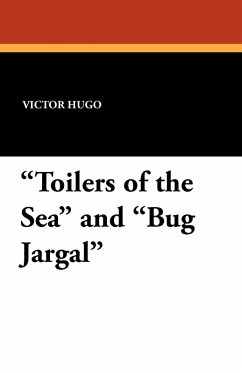First published in 1826, Bug-Jargal is an early novel by Victor Hugo, written when he was just 21 years old. Set during the Haitian Revolution of the late 18th century, the novel is a compelling blend of adventure, romance, and social critique, offering a fascinating glimpse into the youthful genius of one of literature's greatest voices. While not as well-known as Hugo's later masterpieces like Les Misérables and The Hunchback of Notre-Dame, Bug-Jargal showcases the seeds of his enduring concerns with justice, human dignity, and the fight against oppression. The story unfolds against the backdrop of the violent uprising in the French colony of Saint-Domingue (modern-day Haiti), where enslaved people rose up against their colonial oppressors in one of history's most significant revolutions. The narrative centers on the unlikely bond between Leopold d'Auverney, a young French officer, and Bug-Jargal, an enslaved man of noble spirit and extraordinary courage. Through their intertwined fates, Hugo explores themes of loyalty, honor, and the shared humanity that transcends race and class. At its heart, Bug-Jargal is a tale of contrasts: between freedom and enslavement, love and betrayal, and the ideals of liberty and the brutal realities of colonialism. Hugo's depiction of Bug-Jargal as a heroic and dignified figure reflects his early grappling with the concepts of equality and justice, which would later define his most celebrated works. The novel's setting and historical context lend it a unique place in Hugo's oeuvre, as it addresses themes of revolution and social upheaval from a global perspective. Though written in his youth, Bug-Jargal contains the hallmarks of Hugo's genius: vivid descriptions, dramatic storytelling, and a profound empathy for the marginalized. The Haitian Revolution serves as both a backdrop and a catalyst for the novel's exploration of human conflict and moral complexity. While the novel's structure and pacing reveal the work of a young writer, its passion and ambition make it a fascinating precursor to Hugo's later achievements. For readers interested in historical fiction, stories of revolution, or early explorations of themes that would come to define Hugo's career, Bug-Jargal offers a compelling and thought-provoking experience. It is a novel that combines action and emotion with an enduring message about the universal struggle for freedom and dignity. To read Bug-Jargal is to encounter a young Victor Hugo grappling with the grand questions of humanity, justice, and morality. It is a work of early brilliance, capturing the spirit of revolution and the timeless fight for equality in the face of oppression.
Bitte wählen Sie Ihr Anliegen aus.
Rechnungen
Retourenschein anfordern
Bestellstatus
Storno








